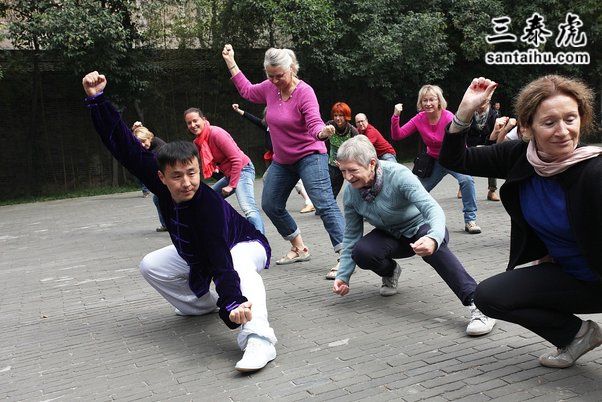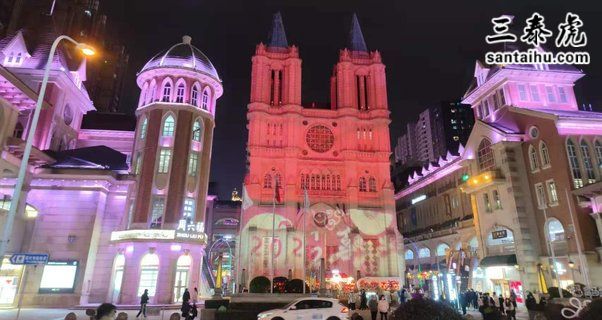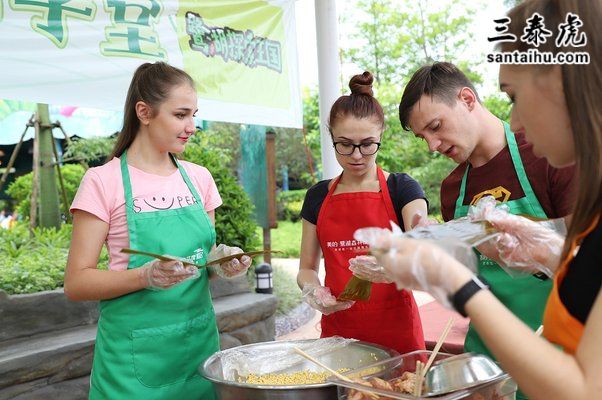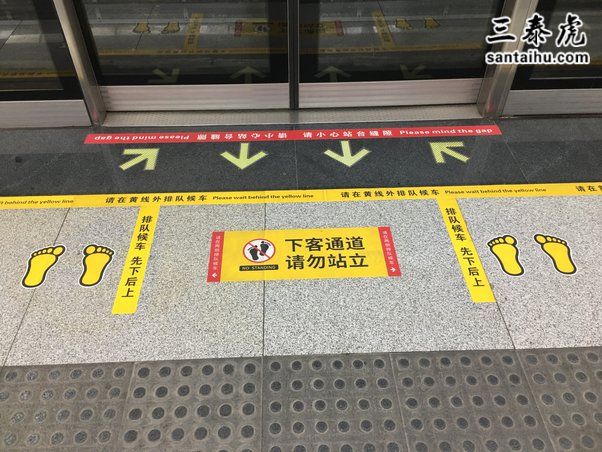What culture shocks do you face coming to China for the first time?
你第一次来中国会遇到哪些文化冲击?
以下是Quora网友的评论:
Jason Smith ShangguanJiewen
Foreigners in China learning Taichi
Honesty in the west has a hue of grey gradation. The term white lie is often talked about by people to jump start a conversation. Successful husbands know to say their partners look good when they ask. You can imagine the reaction to a young married woman if her husband said something like ‘You’ve looked better and those shoes are awful.’ The American south is also fairly famous in the states for being a people high strung about manners and kind words. Some folks coming to China might be surprised at the extreme honesty of their new Chinese coworkers and friends.

外国人在中国学习太极
西方文化中,诚实并不总是非黑即白。人们经常用“善意的谎言”来开启一段对话。一个好的丈夫知道,只要太太问起,一定要夸她们很美。你可以想象,如果一个已婚的年轻女子听到丈夫说“你看起来很美,但这双鞋很丑”,她会是什么反应。美国南方人对礼貌和友善的重视程度,在美国都是出了名的。有些来到中国的美国南方人可能会对刚认识的中国同事和朋友的极端诚实感到惊讶。
I am not thin. That is a sort of lie. You get the idea. Often, and even sometimes as a compliment in China, I am told things like “You are so fat.” Or I can hear people saying so in Chinese. This can be taken wrong by foreigners. Sometimes it is meant as a compliment, like you are so prosperous. At other times when people tell me I should lose weight for example, people honestly think they are being kind and helpful. I have never heard it as meant to be an insult. This is the definition of a cultural difference. For some people, I have seen this as enough to cause them to move back to their home countries.
我并不瘦。那只是一种善意的谎言。你应该懂的。在中国,人们经常会对我说“你太胖了”之类的话,有时他们还把胖当做一种赞美。我也会听到有人用中文这么说。这可能会让外国人误解。有的时候人们觉得这是一种赞美,就好比说你很成功一样。比如有的时候,人们说我该减肥了,他们是真的觉得自己是善意的,为你好的。我从来没有听到过中国人把此当做侮辱人的意思。这就是文化差异。但对于有些人来说,这足以把他们劝退回自己的国家。

The life of an expat is thus. In order to be able to live in another place with a people whose values and habits are so different we must be able to accept, even embrace these differences. Nay, some expats don’t. Then there are those who live in an among the people of their chosen country. This obviously requires that they learn the local language, customs, and even habits ever becoming more like the culture they’ve adopted in the new country.
外国人的生活就是这样。为了跟一个价值观和习惯非常迥异的民族相处,我们必须能够接受,甚至拥抱这些差异。但有些外国人就是不喜欢。但也有人融入了他们选择定居的国家的民众之中。这显然要求他们学习当地的语言、习俗,甚至生活习惯,越来越贴近他们在新国家所接受的文化。
If someone can fully adapt that means they can embrace, even love new ways of doing things. This is telling not about ‘tolerance’ but about real open mindedness. It requires one put away their trained cultural perceptions and really undo their ‘programming’ to move beyond it and experience new ways of living reality.
如果有人能完全适应,那就意味着他们能接受,甚至喜欢新的处世方式。我说的并不是“宽容”,而是在说真正开放的心态。这需要一个人放下他们习以为常的文化观念,打破过往的的经验,体验新的生活方式。

Foreigners learning to make zongzi in China
Living in China is a unique experience and fun journey. On this episode of The Bridge, a podcast show that I record with my standup comedian and new media freelanser/writer friends in China, you could explore this exotic place with me and with a new perspective.
外国人在中国学习包粽子
在中国生活是一种独特的体验和有趣的旅程。在这一集的《桥》中,我和我在中国的单口相声演员和新媒体自由撰稿人/作家朋友一起录制播客节目,你也可以和我一起通过新的视角探索这个充满异国情调的地方。
Jeremy Hayes
I have been living in China for 10 years and there are some things which are still difficult to deal with. The problems of public space and personal space above all.
Outside of major cities like Shanghai and Beiing (and some others), there seems to be little or no concept of public space. This is best understood with the example of elevators or subway cars.
我在中国生活了10年,有些事情还是难以接受。首先就是公共空间和私人空间的问题。
在上海和北京(还有其他一些城市)等大城市之外,公共空间的概念似乎很少或压根就不存在。你可以想象一下电梯或地铁车厢。

When you are in an elevator or subway car and you want to get off, you are often met with a surge of people trying to get on. There are signs and announcements explaining that it works faster if you let people out before trying to push your way in, but these are largely ignored. I don’t think this is selfishness or stupidity, just an absence of the concept of public shared space.
比如你正搭乘电梯或地铁,下车时经常会遇到一群想要上车的人。虽然会有标志和公告说,先下后上速度会更快,但人们基本上对此都置之不理。我觉得这并不是说他们自私或者愚蠢,但他们缺乏公共空间的概念。
Personal space differs from one culture to another, but in much of China the idea is completely absent. You can be sitting having a coffee and reading an interesting article on Quora when suddenly someone will sit down in the empty chair beside you and look at your screen, not just look, but put their face in close, something that as a westerner, makes me uncomfortable. Again this isn’t rudeness I believe, just the absence of the concept of personal space.
私人空间因文化的不同而不同,但在中国的大部分地区,这种观念是完全不存在的。可能你正坐在喝咖啡,在Quora上阅读一篇有趣的文章,突然有人坐在你旁边的空位上,盯着你的屏幕看,他们已经不仅仅是看了,而是把脸凑得很近地看,作为西方人,我感到非常不舒服。当然,我相信他们并非为人粗鲁,只是他们缺乏私人空间的概念。
The biggest culture shock on arrival however is one that continues to bring me joy. It’s a feeling I first experienced on the streets of New York city: people are so free! Yes you read that right. People do whatever they please with little or no regard for rules and regulations, I still find it exhilarating this sense of freedom.
抵达新的环境后最大的文化冲击至今让我觉得快乐。这是我第一次在纽约街头感受到的:人们是如此自由!是的,你没看错。人们喜欢做什么就做什么,很少或根本不用考虑规章制度,这种自由的感觉令人兴奋。
Jiahong Chen
Actually to me is more on Reversed Cultural Shocks. When I returned to China after my 10 years staying in Malaysia, everything was a great change and great challenge to me.
Although I speak Cantonese from this town, I couldn’t understand them. When I returned there, I had forgotten a lot of people there already, so any relationship was new.
As one of my friends who had returned earlier said, when we were first time to be abroad, we tried using the China way on our new life which never works, when we returned, we used the western way on China’s living, it doesn’t work either.
实际上对我而言,感受更多的是反向文化冲击。我在马来西亚呆了10年后回到中国,一切对我来说都是巨大的变化和挑战。
虽然我在这里学会了说粤语,但我听不懂他们在说什么。等我回到这里,很多人都已经不认识了,所有的人际关系都是全新的。
就像在我之前回国的一个朋友说的那样,我们第一次出国的时候,我们尝试用中国的方式来生活,但并不成功,等我们回来的时候,又想用西方的方式在中国生活,也没有成功。
After 5 or 6 years, we then slowly fitting in. For example, when I was in Malaysia, I went out for my lunch and dinner daily, which is general, but when I am in China, eating home for dinner seems more suitable, and China’s communication way is quite different with us.
For example, when Chinese say let’s have a meal together sometime, for us, it’s a deal, and then we wait the time, but they never think that’s a deal or an agreement, for Chinese, only something is scheduled, then it’s an agreement or a deal, but for us, if someone offers a deal and you say yes, then it’s already been a deal, time is just a kind of details to be discussed.
5、6年后,我们才慢慢适应了。我在马来西亚的时候,每天的午餐和晚餐都是在外面吃的,这是很普遍的现象,但是在中国的时候,似乎大家都觉得应该在家里吃晚饭,而且中国的交流方式和我们有很大的不同。
例如,当中国人说我们约个时间一起吃饭吧,那么在我们看来,这就是说好的,然后我们等他们定时间,但他们并不把这当成协定。对中国人来说,只有排好了时间才算数,但对我们来说,只要别人提出了一个要约,你答应了,那么这就是一个协定,具体的时间只是需要进一步讨论的细节。
Kevin Anderson
I was at the museum in ChangZhou, JiangSu Province.
A Very Important Person was leading a delegation through part of the museum.
Some background: for me museums are like oxygen - a necessity. They feed my historical curiosity, my artistic craving, my desire to better understand the human condition. In this case it was my deep gaze into ChangZhou and local history. I appreciate the original artisan, worker, artist, blacksmith, jeweller, stonemason etc. who originally created, the conservator who conserves, the museum officials who design, select, rotate the exhibit for the public’s enjoyment.
我曾经去江苏省常州市的博物馆参观。
一位非常重要的人物正带领一个代表团穿过博物馆某个区域。
我大概介绍一下背景吧:对我来说,博物馆就像氧气—是生活必需品。博物馆满足了我对历史的好奇,我对艺术的渴望,我对深入了解人类生活的渴望。
当时我参观这个博物馆就是想深入了解常州和当地的历史。我欣赏工匠、工人、艺术家、铁匠、珠宝商、石匠等人创作的艺术作品,保护文物的管理员,策划、甄选和轮换展品供公众欣赏的博物馆工作人员。
This Very Important Person had momentarily stopped and was explaining something of great importance. The group listened.
The Very Important Person was smoking. Under a “non-smoking” sign.
I stepped forward, pointed to the sign, pointed to the burning cigarette and said “不让” bu rang, not allowed. I repeated “不让”
No different to if I was about to board a plane, and saw the refueller smoking a cigarette.
这位重要人物停下脚步,开始解释一件非常重要的事情。大家都在认真聆听。
那位重要人物在一块“禁止吸烟”的牌子下面抽起了烟。
我走上前,指着牌子和点着的香烟说“不让”,不准抽烟。我重复了好几遍“不让”。
这就和我在登机时看到加油员抽烟一样。
Chris Robinson
As we now know, the Chinese will eat anything. To see rare animals like Pangolin, civet cats, lizards, snakes and bats for sale in wet markets is a shock. But top that is the unbelievably cruel process that are used to prepare these animals for sale. Not unusual to see the animal suffering intense pain as its skin is ripped off or it is gutted while still alive.
我们现在知道,中国人是什么都吃的。如果你看到菜市场上有穿山甲、果子狸、蜥蜴、蛇和蝙蝠等不寻常的食材,确实非常令人震惊。但除此之外,对这些动物的处理过程更是残酷得令人难以置信。这些动物忍受着巨大的痛苦,被活生生地剥皮,甚至开膛破肚。
Gary Price
Language culture, lack of open affection (people bowing to each other at weddings), cohabitation without marriage frowned upon (in rural areas and Beiing where it has been illegal); foods especially, and non attention to sanitation.
语言文化、公众场合冷静自持,新人们在婚礼上居然会互相鞠躬、不太赞成未婚同居,在农村和北京,未婚同居是非法行为;尤其是食物,人们对卫生状况不太在意。
Adam Johnson
I visited there about ten years ago, and this was really the first time I found myself in a place where English wasn’t spoken and a Latin alphabet wasn’t used. Prior to going there I’d travelled in Europe where you can almost always find plenty of people who speak English and you can read street signs. This isn’t the case in China, especially outside of Beiing/Shanghai and Hong Kong.
大约十年前我去过中国,这是我第一次去到一个不讲英语,也不使用拉丁字母的地方。在去中国之前,我曾经去欧洲旅行,基本上都能找到很多说英语的人,你也能读得懂路标。但在中国,尤其是在北京、上海和香港以外的地方,情况就完全不同了。
Steve Tony
Just shocked how can China developed so fast and infrastructures are 30 years ahead of the US and West.
It keeps me asking who are developed and undeveloped countries.
中国怎么能发展得如此之快,基础设施遥遥领先美国和西方30年,着实令人震惊。
我很想知道,到底谁是发达国家,谁是不发达国家。
Masaco Miyamae
When I traveled to X i’an, China last year, I was shocked by the words of my tour guide, she told me very proudly that we were riding on the tombs of ancient emperors. I swear I have traveled X i'an with awe.
我去年在中国西安旅游时被导游的话震惊了,她非常自豪地告诉我,我们正站在古代皇帝的坟墓之上。我发誓我是怀着一颗敬畏之心在西安游览的。
 印媒:在中国文化中,没有传统立春的农
印媒:在中国文化中,没有传统立春的农 中国文化中有哪些糟粕
中国文化中有哪些糟粕 春节被列为联合国假日,这是中国文化
春节被列为联合国假日,这是中国文化 我在中国生活了7年,大部分时间在上
我在中国生活了7年,大部分时间在上 亚裔俄罗斯人在中国生活是什么感觉
亚裔俄罗斯人在中国生活是什么感觉 为什么越南如此幸运,传承到了中国文
为什么越南如此幸运,传承到了中国文 外国人:在中国生活的十大理由是什么
外国人:在中国生活的十大理由是什么 (VIP)一位在中国工作的印度女教授,
(VIP)一位在中国工作的印度女教授,